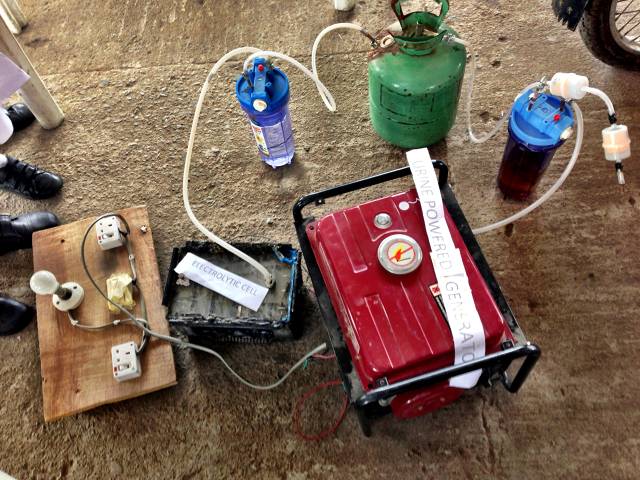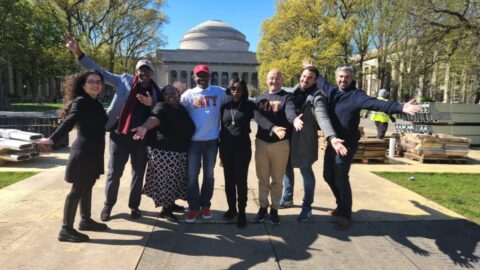Editor’s Note: Apologies for not publishing Daniel’s last piece on Tuesday as we have done over the last couple of weeks. We had to deal with a few technical issues. Daniel has written several pieces for youthhubafrica and this will be the last one (for now), you can read any of of the previous articles here
If you were asked “from which country could persons called Adebolajo and Adebowale be?” – what would be your answer? Well, you probably already know that 28-year old Michael Adebolajo and 22-year old Michael Oluwatobi Adebowale are in custody in England for running down a British army officer with a car and thereafter hacking him to death in Woolwich in the UK.
The slain soldier, Lee Rigby (25) we were told survived Afghanistan only to be brutally murdered on the streets of London. After a tour of duty abroad, a soldier would be likely to think that his home base is the safest place on earth where he could expect to be loved and appreciated; even if all that fail, he/she would reasonably not expect to come under fire on home ground. When you read such stories as the one from Woolwich then you realize how vulnerable really law enforcement officer are and how it is a global problem. The vulnerability of the forces is something that Nigerians would understand since we are still grieving and counting our loss from the evil of Ombatse who killed over 40 police officers just a few weeks ago.
By now, we know a little bit more about the key suspect, Michael Adebolajo; many who spoke confirm that he was sort of well known in extremist circles. Unfortunately the authorities thought he was just a hate preacher who would ultimately not cause harm to anyone – well, except with his rhetoric. But they were mistaken in their estimation of the depth of evil in his heart. Really, there is no moderate extremism; all hate messengers be they racists, xenophobes, religious or whatever kind of extremists, they all have one thing in common: they are extremists and there is no finiteness in an extreme.
One more thing that turn up in my search about Michael Adebolajo is back in 2010 he was arrested in Kenya allegedly enroute to enlist for the Al-Shabaab in Somalia. It appears that Adebolajo was fished out from detention in Kenya and returned home to England (charges dropped?) by the British Embassy in Kenya. Well only 6 months ago, he was approached to become an informant for the authorities (well, the MI5) for which he complained of “harassment” in the end, his family report that “MI5 harassment may have ‘pushed him over the edge’”.
The other Michael – and what is in a name that 2 suspects are both named (after Angel) Michael? Well, it was reported that Michael Oluwatobi Adebowale was “born to Nigerian parents in Denmark Hill, South London, in May 1991. His father was then a student at Rutherford College in Canterbury, Kent, and the couple were said to have separated soon after the birth”. Other reports claim that his mum is a devout Christian while his father was said to be a Nigerian diplomatic staff in the UK.
Now I return to my starting question; what does it mean to be Nigerian? Let us be clear; it is not about having a Nigerian passport – my father did not have any, just as millions of other Nigerians living in Nigeria. Actually, some ‘Nigerians’ who have access to second nationalities do not bother to pick up the Nigerian passport throughout their lives – but that doesn’t make them any less Nigerian. Secondly, it is not about visiting Nigeria – there are Nigerians who are born, bred and died outside of Nigeria. In searching for the answer to this question I was reminded of Asari Dokubo who “denounced” his Nigerian citizenship a while ago. But, Nigerian citizenship is a hard thing to lose, it is like DNA signatures that are passed on and on over the generations. It is your citizenship today but it is only a parcel you are passing from your own parents to your own kids, it is not really yours to denounce. Perhaps it was the realization of this omnipresence of Nigerian citizenship which motivated Dokubo to bounce back with his citizenship and give us a long lecture about who we should vote or what would happen to us.
Summarizing section 25 of the Nigerian Constitution; I find that there are 3 ways to hold citizenship by birth: (a) have a grandparent who “belongs or belonged to a community indigenous to Nigeria”; (b) be born in Nigeria with a citizen parent or grandparent; or (c) be born abroad to a citizen parent.
The interesting aspect of this law is how easy it is to keep citizenship. Now this is not exactly what you would call a “learned” discussion of the law – but it is not layman either, for I am a law-loving kind of citizen and I have given these issues some thought and reflection. Let us then illustrate the emergent picture of Nigerian citizenship. Consider for example a hypothetical Nigerian called Citizen born in the USA in 2010 to a Nigerian parent; the parent was in turn born in 1980 in France to a Nigerian who was born in 1959 in Nigeria. Citizen might be issued a different passport at birth; but you see s/he is a Nigerian since the law had granted irrevocable citizenship to her/his Nigerian parent and downward through the ancestors. Perhaps in 20 years Citizen would have a child born anywhere between here and the moon, that child will also be a Nigerian by default at birth on account of jus sanguinis citizenship passed downward. No matter how long children of this lineage are born abroad and no matter which other passports they hold at birth, they will always also be Nigerians whether or not they apply for a passport from Nigeria; after all, not many Nigerians you know actually have passports. There are is in my view only a slim window to dispose of Nigerian citizenship, but it is not as easy as Dokubo’s denunciation.
I took up this discussion of citizenship because when news broke at first about Michael Mujahid Adebolajo, after accounts of his alleged crimes, the next thing being discussed was whether he is a Nigerian or not. By the way, I request someone to kindly give me a lecture on this name ‘Mujahid’ too, I am wondering, are all people who bear this name always attracted to violence? Well, as a Nigerian living abroad, you feel the tension when names like Adebolajo are flying in the news in connection to crimes; you know without being told that it is time to speak fluent English on the phone even if it is Grandma who is on the other end. Nigerians who passed through major airports shortly after Umar Farouk Abdulmutallab tried to blow up a plane over Detroit with a (stinking) underwear bomb he had worn for three weeks in December 2009 would probably testify to the unease of carrying the same kind of passport with a recently discovered terrorist.
The media was quick to point out that ‘Mujahid’ Adebolajo was a Nigerian or of a Nigerian descent – but for many it was already obvious that Adebolajo would definitely be connected to Nigeria. But then reports from Nigeria were insistent that Adebolajo was NOT a Nigerian. “What about him is Nigerian? He has never been to Nigeria, he was born and miseducated in Britain – in fact, he was high on British weed” – I was told. It could be true from what we know that Adebolajo was born and raised in England and probably he has never been to Nigeria; but does that make him any less Nigerian? If he had been “discovered” scoring football goal, would we not ask to have him play for the Super Eagles? By the time news emerged that the second suspect in the attack was called Michael Oluwatobi Adebowale (with 2 Nigerian names for emphasis); I think that the denial of the Nigerianness of the attackers dissipated. With Adebolajo and Adebowale together, it is hard to deny their Nigerianness.
I guess then we must return to the “problem” of Adebolajo and Adebowale. First they are Nigerians – and they are British too and that technically makes them British-Nigerians (you start with the place of birth). Then they are extremists of some sort (“definitely not Muslims” my Muslim friend has insisted). And they have been brainwashed into the evil that they hold in their hearts. But I think who they are is not as important a question as what they did. It is largely possible to separate their nationality from the crimes they have committed such that a crime is punished but a nation is not stigmatized. For Nigeria, I think it is important we pay a little more time thinking about these overseas Nigerians; whatever they do or don’t do is likely to affect Nigeria and Nigerians.
_______________
Nengak Daniel Gondyi is presently a post-graduate student in International Migration and Ethnic Relations at Malmö Högskola in Sweden. He is also a Senior Programme Officer of the Abuja based Centre for Democracy and Development, CDD. He holds a Bachelors’ in International Studies from the Ahmadu Bello University. Read his full profile here.






